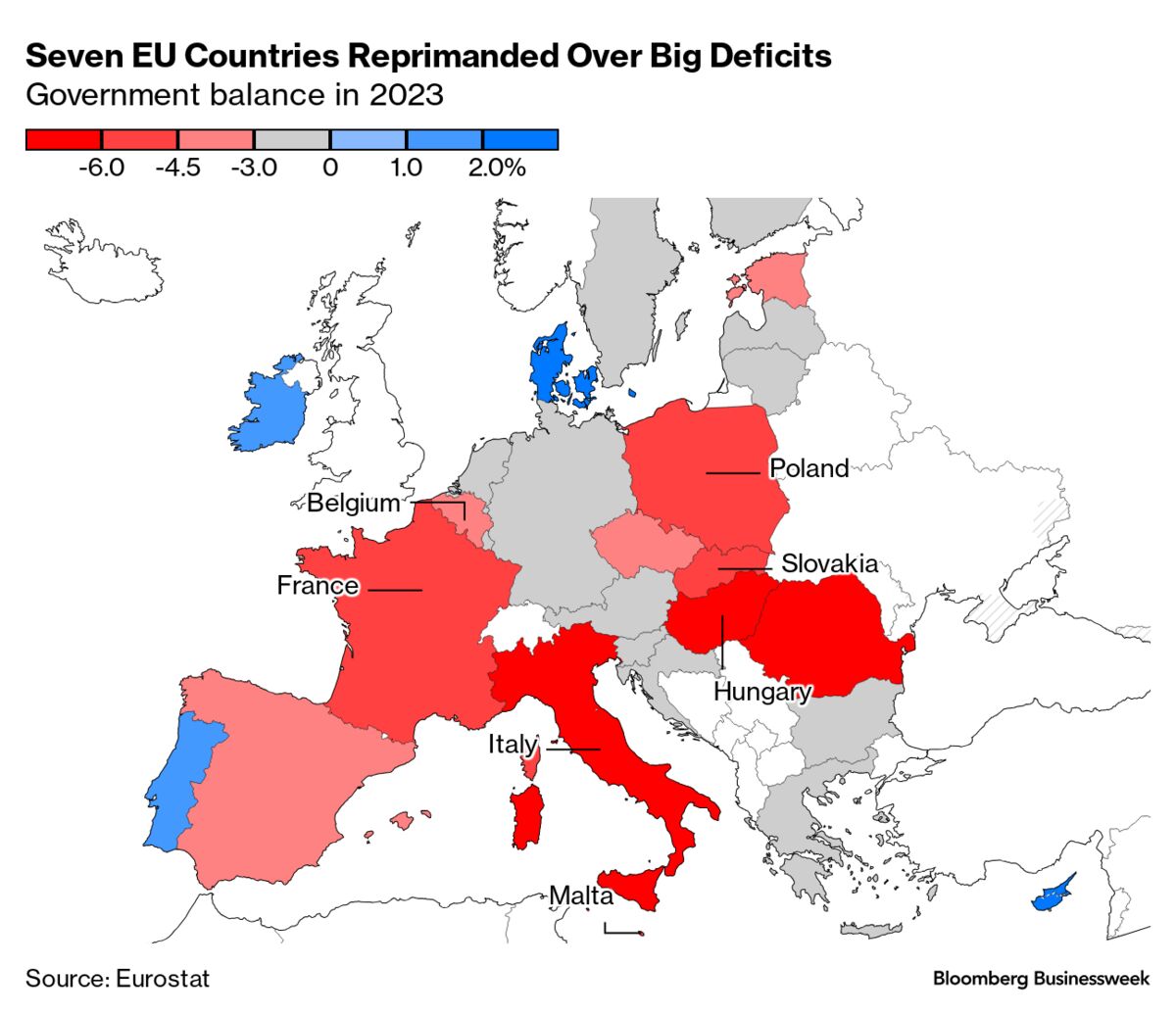
The European Union (EU) has issued reprimands to France and Italy for running big deficits, marking the first stage in a confrontation between the EU and these countries. The announcement comes as French legislative elections are approaching, with Marine Le Pen's National Rally forming the next French government, challenging the European Commission to take action.
According to various sources, France is currently in debt to around €3 trillion or more than 110 percent of gross domestic product. The country's deficit stood at 5.5% last year and is forecasted to remain at 5% in 2025, exceeding the EU threshold of 3%. Additionally, government debt was reportedly at €3 trillion in 2023 and is projected to increase to €3.14 trillion by 2025.
Six other member states, including Belgium, Italy, Hungary, Malta, Poland and Slovakia were also put into the excessive deficit procedure due to their excessive deficits. Countries must reduce 'excessive' deficits by 0.5% a year under new rules.
The EU Commission's decision to launch the 'excessive deficit procedure' against France sets up a collision course with a post-election government potentially dominated by the far-right or the left coalition, both of which have made large spending pledges ahead of legislative elections on 30 June and 7 July.
The far-right National Rally has pledged to repeal Macron's pension reform and reduce the retirement age for those who began work in their teens. They also want to reduce VAT on food and fuel, while Marine Le Pen promised to exempt workers under 30 from income tax during the 2022 presidential campaign.
The New Popular Front, which unites the left, wants to reduce the retirement age to 60, raise the minimum wage and freeze prices of food, energy and fuel. The current finance minister warned that a Liz Truss scenario was possible if National Rally implemented its economic programme. He has made similar warnings about the spending plans of the left.
Despite these challenges, EU Economy Commissioner Paolo Gentiloni expressed confidence that discussions with a future French government would be 'useful and with a good conclusion'. He also rejected suggestions that the obligation to reduce deficits signaled a return to austerity.


